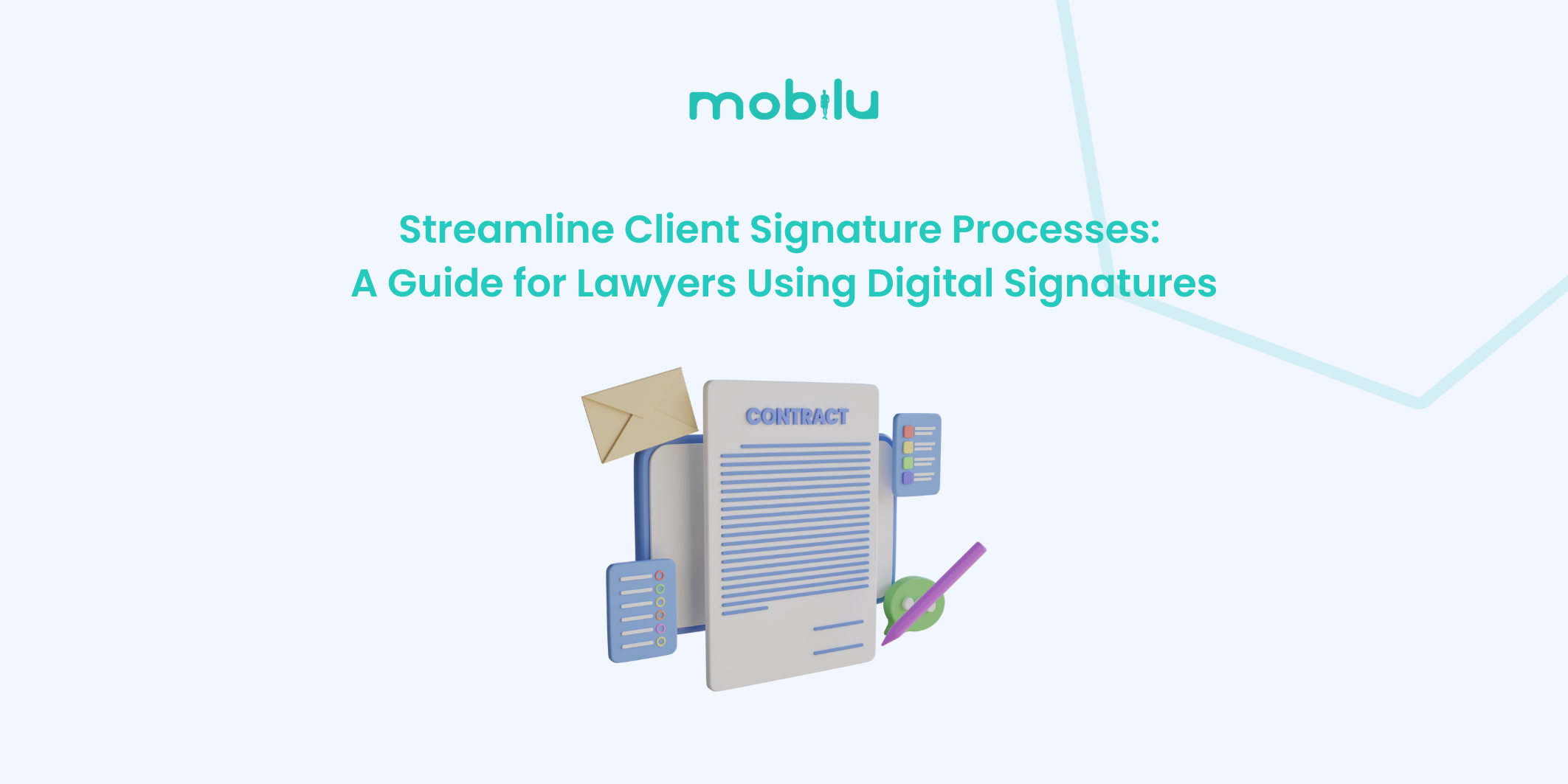Streamline Client Signature Processes: A Guide for Lawyers Using Digital Signatures
In the fast-paced world of law, where time is often of the essence, efficiency and accuracy are paramount. One way lawyers can boost their productivity and enhance client satisfaction is by embracing the digital revolution in the form of digital signatures. This article aims to shed light on the concept of digital signatures, their security, and their various applications in the legal field.
Traditionally, the process of obtaining a client’s signature on legal documents has been cumbersome and time-consuming. However, thanks to the advent of digital signatures, lawyers can now streamline this process, saving both time and resources. But what exactly are digital signatures, and how do they work?
What is a Digital Signature?
A digital signature is an electronic equivalent of a handwritten signature. It serves the same purpose but is implemented in a digital format, making it easier to use, manage, and verify. Digital signatures are created through the application of cryptographic techniques, ensuring the integrity and authenticity of the signed document. Unlike a simple scanned image of a physical signature, a digital signature is a tamper-proof representation of the signer’s identity and intent.
How Digital Signatures Work
Digital signatures are founded on public key infrastructure (PKI) technology. Here’s a simplified breakdown of how they work:
- Key Pair Generation: The signer generates a pair of keys—a private key that is kept secret and a public key that is shared.
- Document Hashing: The document to be signed is processed through a hashing algorithm, creating a unique “digest.”
- Signing: The private key is used to encrypt the document’s digest, creating a digital signature.
- Verification: The recipient uses the public key to decrypt the digital signature, revealing the digest. They then hash the received document and compare it with the decrypted digest. If they match, the signature is valid.
The use of a private key ensures that only the individual in possession of it can create a valid digital signature, making it highly secure.
Are Digital Signatures Secure?
Digital signatures are incredibly secure when implemented correctly. They offer several layers of security:
- Authentication: Digital signatures verify the identity of the signer. It’s nearly impossible to forge someone else’s digital signature without their private key.
- Integrity: Any alterations made to the signed document after the signature is affixed will break the signature’s verification, alerting the recipient to tampering.
- Non-Repudiation: Signers cannot deny their involvement in the document, as their private key is required to create a valid signature.
- Long-Term Validity: Digital signatures are valid for an extended period, and their integrity remains intact even after many years.
In What Situations Can Digital Signatures be Used?
Lawyers can benefit from digital signatures in various scenarios:
- Client Agreements: Easily sign and store client agreements, ensuring both parties have a secure copy.
- Court Documents: Submit legal documents electronically with a verifiable signature.
- Contracts and Leases: Execute contracts and leases quickly, without the need for in-person meetings.
- Legal Forms: Fill out and sign legal forms digitally, simplifying the administrative process.
- Notarization: In some jurisdictions, digital signatures can be used for notarization, reducing the need for physical presence.
How Does Mobilu Digital Signatures Feature Work?
Mobilu offers a robust digital signature feature. Here’s a sneak peek into how it works:
- Document Upload: Upload the document requiring a signature onto the Mobilu platform.
- Recipient Invitation: Mobilu enables to invite clients or other parties to sign the document via email or a secure link.
- Signature Creation: Recipients can easily create their digital signatures using a secure, user-friendly interface.
- Verification and Storage: Once signed, the document is securely stored and can be easily retrieved and verified at any time.
- Compliance: Mobilu ensures compliance with legal standards and regulations regarding digital signatures.
Incorporating Mobilu’s digital signature feature into your legal practice can significantly expedite document signing processes, enhance security, and save time and resources. Mobilu offers a comprehensive solution by integrating several digital signature tools, including Luxtrust and Its me. These tools not only streamline the signing process but also provide an added layer of security to your documents.
In conclusion, the adoption of digital signatures can be a game-changer for lawyers seeking to modernize their practices. They offer security, convenience, and efficiency, making it easier than ever to obtain legally binding signatures from clients and other parties. Mobilu’s digital signature feature takes this convenience to a whole new level, making it a must-have tool for any lawyer looking to stay ahead in the digital age.






